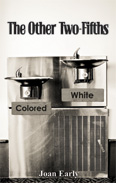
 |
In 1908, Springfield, Illinois is on edge and race relations fragile. Adelaide Carter, a housemaid for the honorable Judge Fowler, fears for her missing son, Hollis. After tensions boil over, black citizens' safety are at risk, and Hollis may be hurt or worse. Then Adelaide finds out more than she bargained for when she finally learns the truth about Hollis.
Years later, a shift in the political and social culture deeply affects several young women and men near the end of the1960s. Jonah, tormented by the Vietnam war, is bitter, angry, and ready for a revolution, while his brother, Avery, seeks education and advancement opportunities. Camille fears talks of revolutions and another Civil War. She feels called to join Eli in the fight for voter registration rights. They face challenges of fear and resistance among the black community while encountering threats of police brutality and the Ku Klux Klan. Camille also learns surprising truths about her family and discovers a love and security from her trusted Eli.
Forty years later, Camille witnesses the historic inauguration of the first black American president. In that place and time, she is reminded of all she has endured, like the many before her generation who contributed to the long strife to reach such a pivotal moment.
Early's novel is a multi-generational tale of black families and individuals connected by notable moments in the fabric of American history. Spanning across decades, it highlights their plight and scrutinizes the toll of racial inequality. Yet, while some characters are featured too seldom to advance the overall plot, the bulk of the novel belongs to Camille and Eli. They are Early's heroes, symbolic of young, idealistic Americans—black Americans in particular—who endeavor to keep hope alive and enact change that comes only from an unwavering devotion.